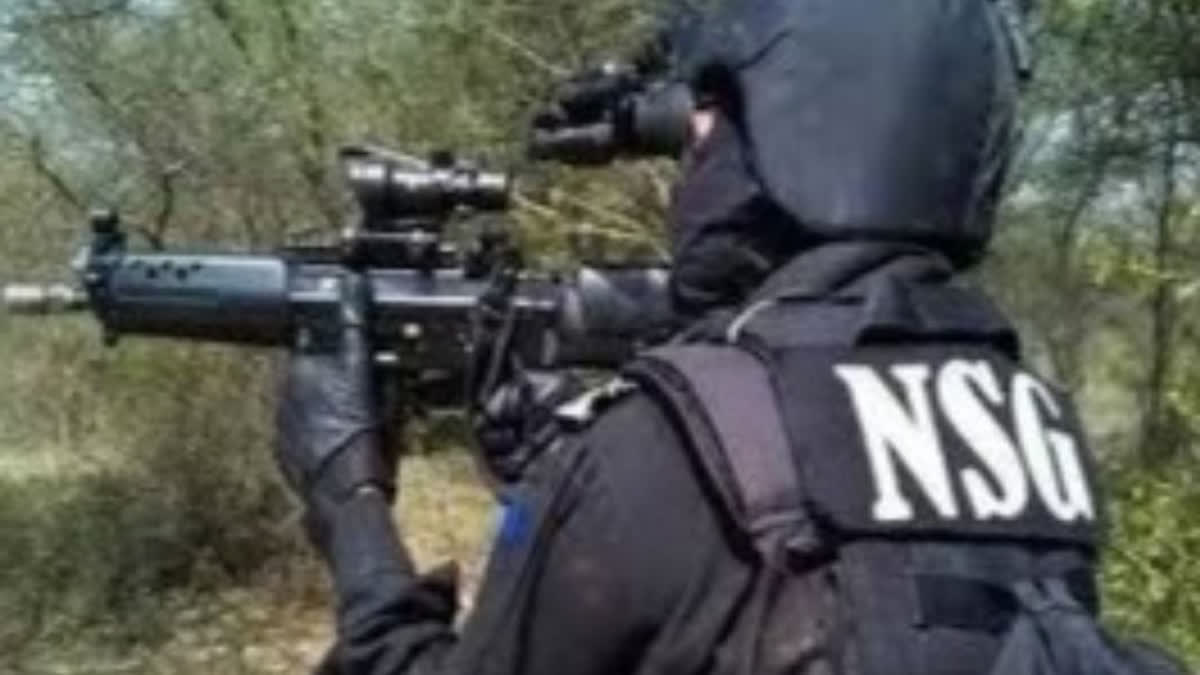Every year on October 16, National Security Guard Raising Day is observed to honor the NSG's establishment in 1984. Terrorist attacks and other serious security threats in India are handled by the NSG, a specialist counterterrorism force.
History of the National Security Guard Raising Day
- On October 16, 1984, the National Security Guard was established following Operation Blue Star. The goal of the military operation was to drive Sikh extremists out of Amritsar's Golden Temple. The operation proved to be successful, but it also made clear that India needs a dedicated counterterrorism force.
- Under the National Security Guard Act of 1986, the NSG was established.
- Under the Ministry of Home Affairs, it is a federal contingency force.
- Headquarter: Haryana's Manesar.
- In India, it has six regional headquarters.
- It is a specialized force with extensive training.
- Its personnel are trained to handle a wide range of terrorist threats, including hostage rescue, counter-hijack operations, and bomb disposal. It is outfitted with the newest weapons and technologies.
Significance National Security Guard Raising Day
- It prevents terrorism from occurring. Terrorists are strongly warned by the NSG's very existence that India is capable of putting an end to their attacks.
- It is a specialized force with extensive training. The NSG is prepared to tackle a variety of terrorist threats, including counterhijack operations, bomb disposal, and hostage rescue.
- Its success has been demonstrated in the past. When it comes to stopping and responding to terrorist attacks in India, such as the 2008 Mumbai attacks, the NSG has been instrumental.
- It represents national security. The NSG serves as a reminder of India's dedication to defending its people against terrorism.
Terrorist attacks, hostage situations, and hijackings are just a few of the high-stress scenarios that the NSG can manage. Prior to the Central government's 2020 decision to remove the force from the area, it was also in charge of VIP security in the nation. The Black Cats, who are modeled after the German GSG-9 and the United Kingdom's Special Air Services (SAS), were heavily involved in the aftermath of the 2002 Akshardham temple attack in Gujarat as well as the 2008 26/11 Mumbai terror attacks.
Operation Black Tornado (2008), in which NSG commandos stormed the Taj Mahal Palace Hotel, the Oberoi Trident hotel, and the Nariman House while coordinating with staff from other organizations, was one of the Black Cats' most memorable missions.
Notable Operations that the NSG has participated in
- Operation Black Thunder I (1986): The NSG rescued all hostages and cleared the Golden Temple of Sikh militants.
- Operation Black Thunder II (1988): The NSG again cleared the Golden Temple of Sikh militants.
- Operation Muskan (1992): The NSG rescued all children who had been kidnapped by militants in Jammu and Kashmir.
- Operation Mountain Rhino (1999): The NSG was deployed to Jammu and Kashmir to counter-terrorist operations.
- Operation Thunderbolt (2008): The NSG rescued all hostages and killed all terrorists in the Mumbai attacks.
Functions of National Security Guard
- Protection of VIPs.
- Counter-terrorism operations.
- Primarily an anti-terrorist force for combating terrorist activities and carries out other functions such as counter-hijacking, etc.
- Elite force for shielding the President of India and other dignitaries from possible kidnappings or assassination attempts and other duties about “Operational Security.”
- To protect the Prime Minister of India and other dignitaries when on foreign travel.
- To provide security for the Indian High Commission in other countries and protect their nationals in India who the Indian High Commission transfers to various offices abroad.
- Provide close protection of visiting foreign dignitaries, including heads of state and government, business leaders, and diplomats, at the behest of the Indian Ministry of External Affairs.
- Provide strategic support to the armed forces in communications, locational, and logistics information.
- Maritime security to guard India’s coastal areas, ports, offshore facilities, and merchant shipping lanes.
- Provide security to Indian border posts at critical locations along the land borders with Bangladesh, Pakistan, and China.
- To provide security at state secretariats in some states of India as per norms and guidelines of the Government of India.
An essential component of India's security apparatus is the National Security Guard. It is a force with extensive training and specialization that can tackle a variety of terrorist threats. It has a successful track record and has been instrumental in stopping and responding to terrorist attacks in India. The NSG is involved in other security operations, such as VIP protection and disaster relief, in addition to its role in counterterrorism. It is an extremely competent and adaptable force that can handle a variety of security issues.



